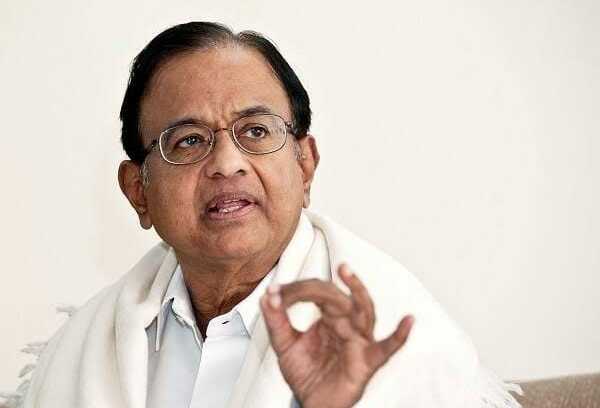
By P Chidambaram (23 February 2020) – On February 16, Prime Minister Narendra Modi, speaking at Varanasi, referred to the decisions to revoke Article 370 of the Constitution and to enact the Citizenship (Amendment) Act, and said, “In national interest, these decisions were necessary. Despite the various international pressures, we stand by these decisions and will continue to stand by them.”
The magic words are ‘national interest’. They do not signal correctness, they signal finality. Because the PM has declared that the decisions were taken in national interest, he expects that all criticism should cease and all debate should end.
I looked back over the BJP/NDA years and tried to count the decisions and actions taken by the Central government that the government claimed were in national interest. The list is long and controversial. Here is what I was able to compile:
Demonetisation & GST
* Demonetisation was in national interest, the government asserted repeatedly. Critics said it was a monumental blunder and had disastrous consequences: cash was sucked out of the system, crippling cash-driven sectors of the economy such as agriculture, construction, retail trade and self-employment. Owners of micro and small enterprises were forced to shut down their businesses and many of them continue to remain shut. Those who lost their jobs remained jobless for a long time thereafter. The jury is out on whether demonetisation was in, or against, national interest.
Tavleen Singh writes: Dissent is not sedition, it is truly the ‘safety valve’ of democratic countries
* GST was a law passed, according to the government, in national interest. It was a plausible argument if the law had been designed carefully, the rate had been a single moderate rate, the software had been ready, and the administrative machinery had been trained and prepared. Nearly two years later, GST collections are below estimates, GST compensation cess is insufficient to compensate the states as promised, and refund has become a major bone of contention between the government and business. It would not be in national interest to roll back GST, it would also not be in national interest to persist with the current design and rates. So, what is in the country’s interest?
Article 370 & NRC-CAA
* Using Article 370 to get rid of Art 370 was in national interest, argued the government. Fracturing the state of Jammu & Kashmir into two Union territories was in national interest. Putting the Valley in a lockdown since August 5, 2019, was in supreme national interest. Detaining three former chief ministers without charges for six months and then invoking the Public Safety Act to detain them, without charges, for a further period up to two years was of paramount national interest. Stalling the hearing of the habeas corpus petitions for over seven months was in national interest. The list is long but no one in Kashmir seems to agree.
* Constructing a National Register of Citizens for Assam was in national interest, the government claimed. Identifying 19,06,657 persons as foreigners or illegal migrants was in national interest. Calling them ‘termites’ and vowing to throw them out by 2024 was to advance national interest. Finding that over 12 lakh among the so-called foreigners were Hindus and striking upon the diabolical idea of amending the Citizenship Act, 1955, was a ‘solution’ devised in national interest. Drafting and passing a law in 72 hours that will allow non-Muslims to remain while Muslims would have to leave (or be thrown out) was in the highest national interest. These national interest decisions have thrown the whole country into unprecedented turmoil.
* Rejecting Ms Jabeda Begum’s claim based on 15 documents to be a citizen of India was to protect national interest.
Sedition & Budget
* Slapping sedition charges on those who spoke against the Citizenship (Amendment) Act was in national interest. Using lathis and water canons and firing bullets on peaceful protesters (23 persons were killed in Uttar Pradesh alone) were in national interest. Detaining a teacher and a parent for enacting a play that obliquely criticised CAA was in national interest.
* Goading the gathering at election rallies to shout back goli maaro and calling a serving chief minister a ‘terrorist’ were in national interest. Describing the contest between the BJP and AAP as a fight between India and Pakistan was to protect national interest.
* Reading out a 160-minute Budget speech (albeit leaving it incomplete) was in national interest. Handing out an estimated Rs 1,45,000 crore to a few hundred corporates in the form of a reduction in the corporate tax rate was in national interest. Cutting the expenditure (revised estimates) on agriculture, food security, mid-day meal scheme, skill development, Ayushman Yojana (healthcare scheme), etc was in national interest. Suppressing the NSSO surveys that reported rising unemployment (6.1 per cent in 2017-18) and falling consumption (by 3.7 per cent in 2017-18) was to safeguard national interest. Chanting slogans is to create awareness of national interests.
* Allowing Mr Nirav Modi, Mr Mehul Choksi, Mr Vijay Mallya, Mr Jatin Mehta, the Sandesara brothers and others to quietly slip out of the country was in national interest. Not pressing the UK government to deport Mr Lalit Modi is also in national interest.
The national interest list is unending. With the government working overtime to take so many decisions in national interest, it is only a matter of time before India’s GDP will swell to USD 5 trillion and India will become the foremost power in the world.
The article first appeared in The Indian Express.


